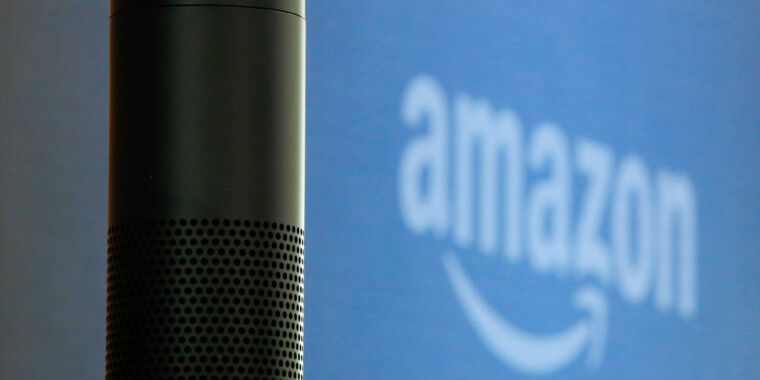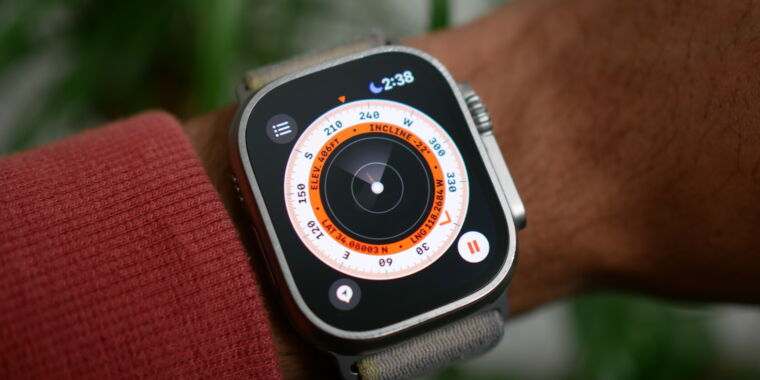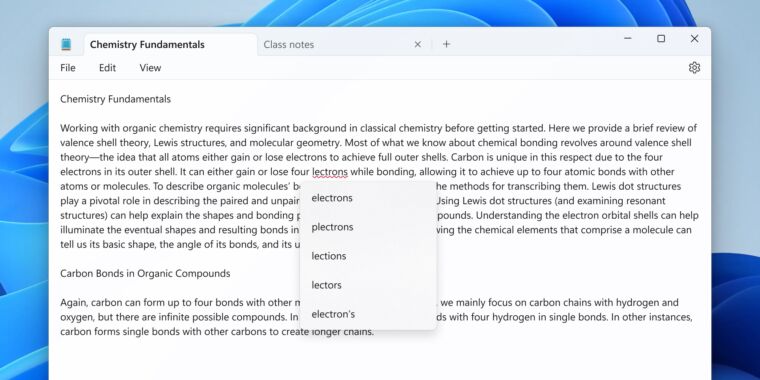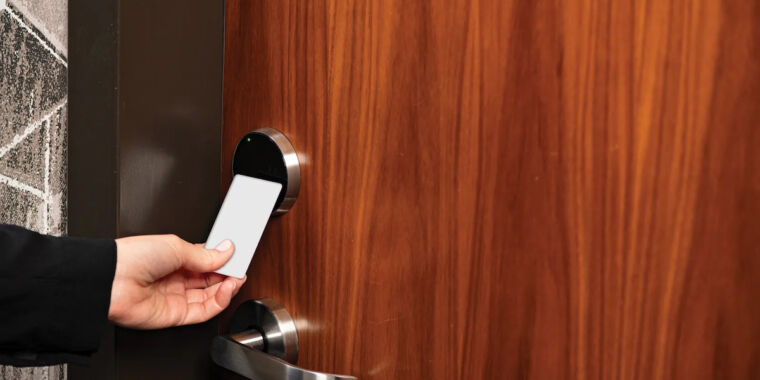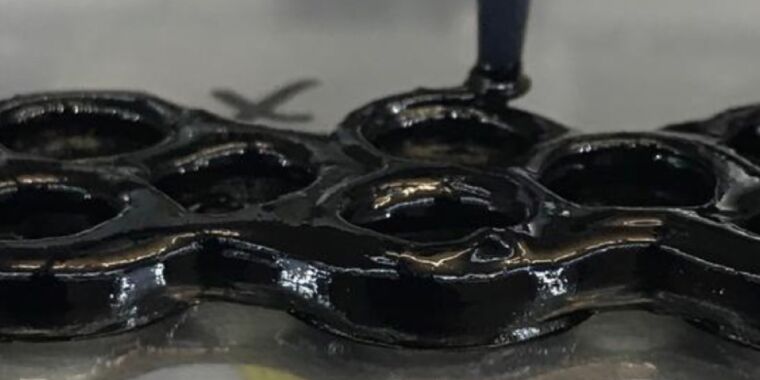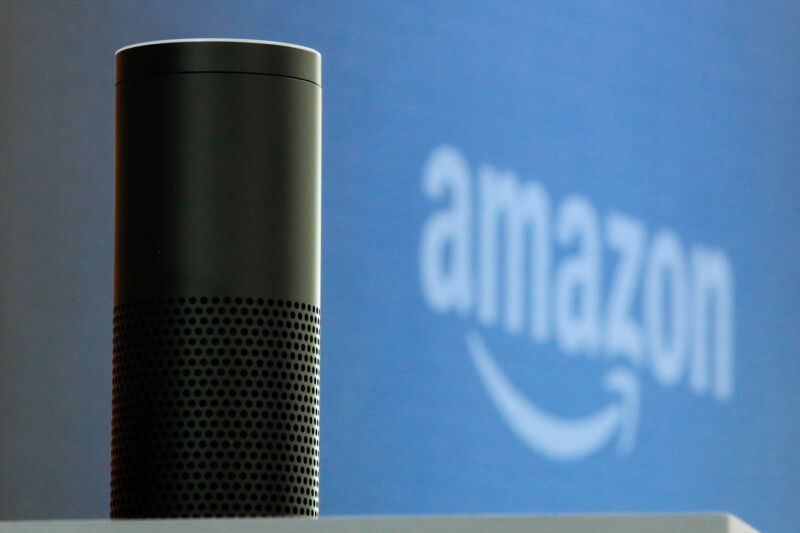
Luke MacGregor/Bloomberg via Getty Images
A Delaware federal court has ordered Amazon to pay $46.7 million for infringing on four patents belonging to VB Assets with Amazon’s Echo smart speakers and Alexa virtual assistant. A lawsuit from Nuance Communications-owned VB Assets, previously known as VoiceBox Technologies, claimed to have already invented a circular speaker that could connect to the web and answer voice-dictated prompts with a female, robotic voice.
Wednesday’s judgment [PDF], initially reported by Reuters, orders Amazon to pay the sum via running royalty rather than a lump sum. The ruling follows a jury verdict [PDF] finding that Amazon infringed upon four of VoiceBox’s patents. The patents relate to providing network-coordinated conversational services, a conversational voice user interface, and tying advertisements to natural language processing of voice-based input. VB Assets originally accused Amazon of infringing on six of its patents.
Amazon still has time to appeal the judgment, and VoiceBox has time to seek reimbursement for related costs.
Patent infringement claims
VoiceBox claimed that it developed a prototype of something similar to Echo and Alexa long before Amazon’s products were announced. In fact, its lawsuit, filed in 2019 [PDFs], included a link to a video on YouTube appearing to be a news report about VoiceBox’s “Cybermind” prototype. The video seemingly shows a report from Seattle’s King 5 News from 2006, demoing someone asking a speaker questions like, “Computer, what is the NBA schedule?” and “Computer, what is the forecast for Sunday?” as well as prompts, such as “Computer, find me a good recipe for chocolate cheesecake.” A voice from the speaker responds to the questions or prompts, reportedly by pulling answers from the Internet or the connected computer.
You can check out the cited video and the prototype in action below:
Seattle’s King 5 News in 2006.
The lawsuit claimed VoiceBox’s founders began work on bringing natural language understanding to computer applications in 2001. Headquartered in Bellevue, Washington, VoiceBox has made voice-controlled apps for TomTom and other GPS brands and cars, Reuters noted.
VoiceBox’s lawsuit claimed VoiceBox demoed a voice assistant for Lexus cars called Alexus “that showcased the power of its conversational Voice technology.” The lawsuit claimed that the “’Alexus’ concept was introduced to the public more than six months before Amazon announced ‘Alexa.'”
Like other patent cases against tech giants, the lawsuit also claimed that Amazon invited VoiceBox employees into meetings about VoiceBox’s technologies, only to end up ripping off the company’s ideas and poaching employees. VoiceBox’s lawsuit claimed VoiceBox first met with Amazon in 2011 “to explore a potential business relationship where VoiceBox Technologies would provide core [natural language understanding] services to Amazon.” Amazon announced the Amazon Echo and Alexa in 2014. VoiceBox also claimed to have had meetings about its patents with Amazon in 2017.
Amazon didn’t respond to Ars Technica’s request for comment.
Another road bump for Alexa
The judgment handed down this week contrasts a 2021 ruling in a Delaware federal court finding that Alexa does not infringe upon patents by IPA Technologies Inc., as Reuters reported. While not nearly as sizeable a judgment as we’ve seen in other recent patent cases and a drop in the bucket in terms of Amazon’s overall revenue, the ruling against Amazon comes at an inconvenient time of uncertainty and flux for its voice assistant.
At the end of 2022, Business Insider reported that Alexa was poised to lose Amazon $10 billion that year. Amazon never confirmed that figure, but there’s no denying that voice assistant peddlers have been desperately brainstorming ways to try to increase the amount of revenue such technologies generate. Amazon’s long-time devices head, David Limp, is also leaving the company this year.
Hoping to turn things around, Amazon in September revealed its generative AI Alexa ambitions and hopes that the voice assistant will eventually become so advanced and helpful that customers will be willing to pay a subscription fee to use its most impressive features. However, Amazon is years away from making that idea viable.

